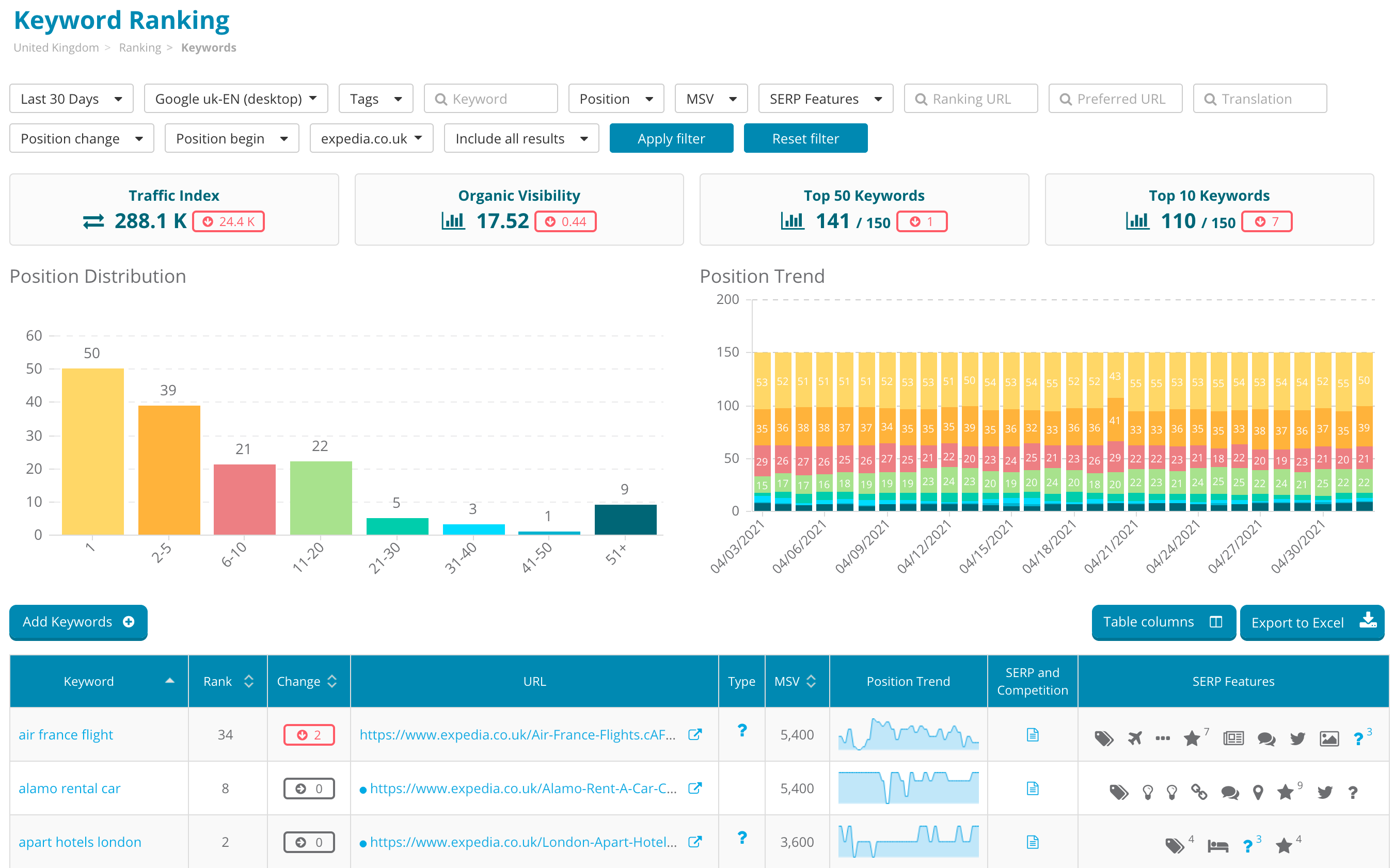The Key to Unlocking SEO Success: Keyword Analysis
Search Engine Optimization (SEO) is a crucial aspect of any successful digital marketing strategy. At the heart of SEO lies keyword analysis, a process that involves researching and selecting the right keywords to target in order to drive organic traffic to your website. In this article, we delve into the importance of SEO keyword analysis and how it can help you climb the search engine rankings.
What is SEO Keyword Analysis?
SEO keyword analysis is the foundation of any effective SEO campaign. It involves identifying the keywords and phrases that your target audience is searching for online. By understanding these search terms, you can optimise your website’s content to align with what users are looking for, ultimately improving your visibility in search engine results pages.
The Benefits of Keyword Analysis
Effective keyword analysis offers a host of benefits for your website:
- Improved Visibility: By targeting relevant keywords, you increase the likelihood of your website appearing in search results when users query those terms.
- Higher Rankings: Optimising your content around high-value keywords can help boost your rankings on search engines like Google, driving more organic traffic to your site.
- Targeted Traffic: By focusing on specific keywords related to your products or services, you attract visitors who are more likely to convert into customers.
- Insight into User Intent: Keyword analysis provides valuable insights into what users are searching for and their intent, helping you tailor your content to meet their needs.
How to Conduct Keyword Analysis
The process of keyword analysis typically involves:
- Keyword Research: Use tools like Google Keyword Planner, SEMrush, or Ahrefs to identify relevant keywords with high search volumes and low competition.
- Competitor Analysis: Analyse the keywords that your competitors are ranking for and identify opportunities to target similar terms.
- Keyword Mapping: Organise your selected keywords into groups based on relevance and create a content strategy around them.
- Monitoring and Refinement: Regularly monitor the performance of your chosen keywords and make adjustments as needed to improve results.
In Conclusion
In conclusion, SEO keyword analysis is a fundamental aspect of any successful SEO strategy. By understanding what users are searching for and optimising your content accordingly, you can drive targeted traffic to your website and improve your search engine rankings. Invest time and effort in conducting thorough keyword analysis, and watch as your online visibility grows exponentially.
Essential FAQs on SEO Keyword Analysis: A Comprehensive Guide
- What is SEO keyword analysis?
- Why is keyword analysis important for SEO?
- How does keyword analysis impact search engine rankings?
- What tools can be used for conducting keyword research in SEO?
- How can I identify relevant keywords for my website?
- What is the difference between short-tail and long-tail keywords?
- How often should I conduct keyword analysis for my website?
- Can competitor analysis help in identifying valuable keywords for SEO?
- What are the best practices for implementing keywords in website content?
What is SEO keyword analysis?
SEO keyword analysis is a fundamental component of search engine optimisation that involves researching and selecting specific keywords and phrases relevant to a website’s content and target audience. By conducting SEO keyword analysis, website owners can gain valuable insights into the search terms their potential visitors are using, allowing them to optimise their content to align with user intent. This process helps improve a website’s visibility in search engine results pages, driving organic traffic and ultimately boosting its online presence.
Why is keyword analysis important for SEO?
Understanding the significance of keyword analysis is paramount in the realm of SEO. Keyword analysis plays a pivotal role in SEO as it serves as the compass guiding your online visibility. By conducting thorough keyword analysis, businesses can identify the search terms their target audience uses, enabling them to tailor their content to meet users’ needs effectively. This strategic approach not only improves a website’s search engine rankings but also drives organic traffic, boosts visibility, and enhances the overall user experience. In essence, keyword analysis is the cornerstone of a successful SEO strategy, providing invaluable insights that pave the way for digital success.
How does keyword analysis impact search engine rankings?
Keyword analysis plays a pivotal role in determining the search engine rankings of a website. By conducting thorough keyword research and strategically incorporating relevant keywords into your content, you can signal to search engines like Google what your website is about and who it is intended for. When search engines crawl your site and find that it is optimised with the right keywords, they are more likely to rank your pages higher in search results for those specific terms. In essence, keyword analysis directly influences how well your website performs in search engine rankings by ensuring that your content aligns with the queries users are entering into search engines.
What tools can be used for conducting keyword research in SEO?
When it comes to conducting keyword research in SEO, there are several valuable tools available to assist digital marketers in identifying relevant and high-performing keywords. Popular tools such as Google Keyword Planner, SEMrush, Ahrefs, Moz Keyword Explorer, and Ubersuggest are widely used for this purpose. These tools provide insights into search volume, keyword competition, and related terms, enabling marketers to make informed decisions when selecting keywords to target in their SEO campaigns. By utilising these tools effectively, businesses can enhance their online visibility and attract targeted traffic to their websites.
How can I identify relevant keywords for my website?
To identify relevant keywords for your website, start by understanding your target audience and their search behaviour. Conduct thorough keyword research using tools like Google Keyword Planner, SEMrush, or Ahrefs to discover high-volume keywords related to your industry or niche. Analyse the search intent behind these keywords to ensure they align with the content and services you offer. Additionally, consider exploring long-tail keywords that are more specific and have lower competition but higher conversion potential. Regularly monitor keyword performance and make adjustments as needed to stay competitive in search engine rankings. By investing time in comprehensive keyword analysis, you can effectively reach your target audience and improve your website’s visibility online.
What is the difference between short-tail and long-tail keywords?
When it comes to SEO keyword analysis, understanding the difference between short-tail and long-tail keywords is crucial. Short-tail keywords are brief and general terms that typically consist of one or two words. They have high search volumes but also high competition. On the other hand, long-tail keywords are longer and more specific phrases that target a niche audience. While they may have lower search volumes, they often result in higher conversion rates as they cater to users with clear intent. Balancing the use of short-tail and long-tail keywords in your SEO strategy can help you reach a broader audience while also attracting more qualified leads to your website.
How often should I conduct keyword analysis for my website?
Regularly conducting keyword analysis is essential for maintaining the effectiveness of your SEO strategy. The frequency at which you should perform keyword analysis for your website depends on various factors, such as the competitiveness of your industry, changes in search trends, and the evolving needs of your target audience. As a general rule of thumb, it is recommended to conduct keyword analysis at least once every few months to stay abreast of any shifts in search behaviour and ensure that your website’s content remains optimised for relevant keywords. By regularly revisiting and updating your keyword strategy, you can adapt to the dynamic nature of search engines and maximise your chances of ranking higher in search results.
Can competitor analysis help in identifying valuable keywords for SEO?
Competitor analysis can indeed be a valuable tool in identifying high-performing keywords for SEO. By examining the keywords that competitors are ranking for, businesses can gain insights into effective keyword strategies and uncover new opportunities to target relevant search terms. Understanding the keywords that competitors are successfully leveraging can help inform your own keyword selection process, allowing you to identify valuable keywords with high search volumes and low competition. By incorporating competitor analysis into your SEO keyword research, you can enhance your overall strategy and improve your website’s visibility in search engine results pages.
What are the best practices for implementing keywords in website content?
When it comes to implementing keywords in website content, following best practices is essential for effective SEO. Firstly, it’s crucial to conduct thorough keyword research to identify relevant and high-value keywords that align with your target audience’s search intent. Once you have selected your keywords, integrate them naturally into your content, including in titles, headings, meta tags, and throughout the body of the text. Avoid keyword stuffing, as this can harm your website’s ranking. Additionally, focus on creating high-quality, engaging content that provides value to users while incorporating your chosen keywords strategically. Regularly monitor and analyse the performance of your keywords to make informed adjustments and ensure optimal results in driving organic traffic to your website.


